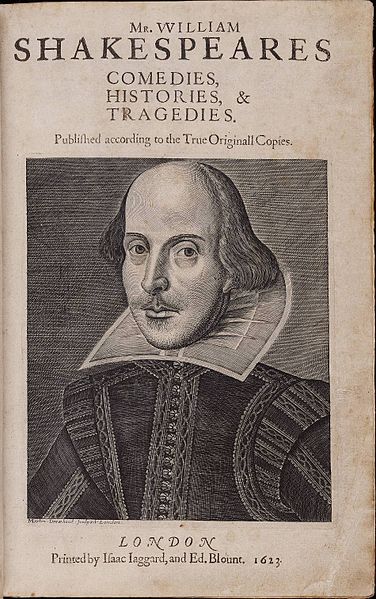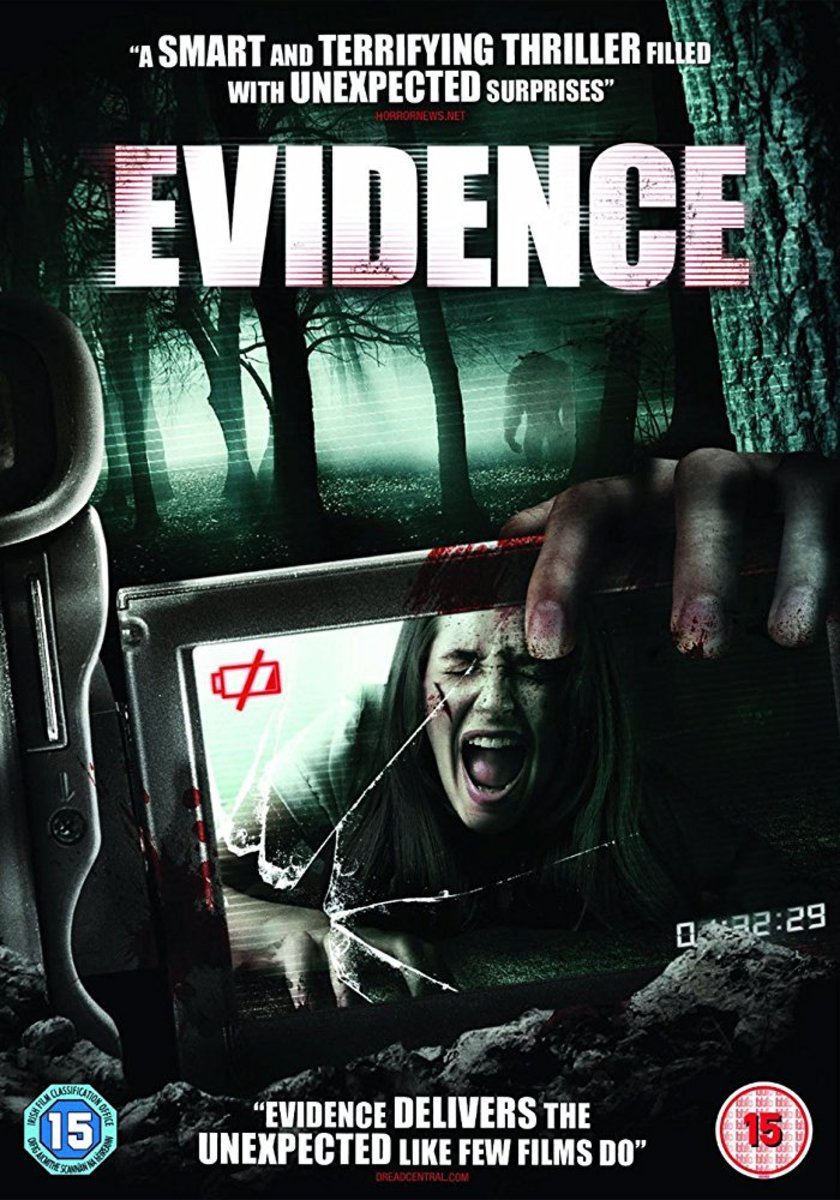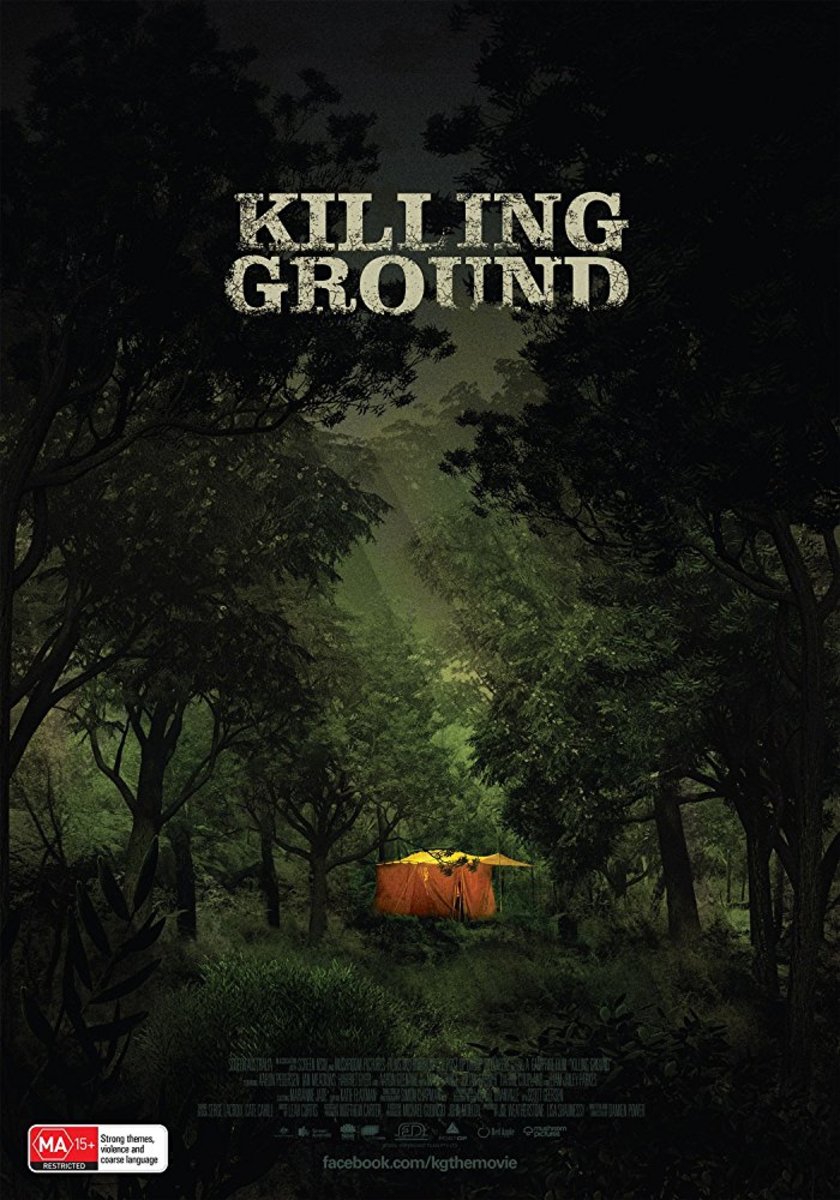Will and Me: Romeo+Juliet (1996) Review

Hello there. Just in case you haven’t explored my profile on HubPages, my name is Nathan Milne, and I am a young yet-to-be-discovered writer and community theatre actor living in Melbourne, Australia. I have wanted to be a writer since I was nine years old after listening to Stephen Fry’s brilliant reading of Harry Potter and the Chamber of Secrets by J.K. Rowling. After being inspired by Rowling’s paging turning prose and feeling quite amused with the character of wizarding author Gilderoy Lockhart (who, despite the fact he turned out to be a fraud at the end of the novel, showed me that authors can be well respected by their peers), I made a promise to do whatever it takes to become a published writer.
Roughly twelve years on (give or take a few months and days), I have been developing my talents as a writer: I am aiming to write mostly for the theatre, musical theatre, television and the poetry world. And so far, I have managed to publish various short articles in magazines like That’s Life, Take 5 and many community newsletters; have had six one act plays produced in community theatres across Melbourne (my recent being The Great Marriage Swindle, produced by Swinburne University of Technology and staged at the David Williamson Theatre, Prahran); have written the screenplays for four indie short films; and in March, I shall be starting a series of YouTube videos called The Angry Beat Poet, featuring me reciting a collection of beat poems I have written throughout 2009 and 2013.
I intend of creating a career based around many different writing styles and genres. But deep down, one of my greatest loves has always been writing for the stage: The author’s name posted in front of the building; the symphony of applause from an audience of aspiring artists and thinkers; the places you can go with your stage directions and dialogue; and most important of all….the opportunity to work with other people, from the actors who will be making your words go down in history to the director will be bringing your world to life, to the set crew who are risking their bones to carry lights as heavy as a shopping bag full of bricks from point A to point B. (Being a writer is a fairly lonely trade, so people like a modern day Laurance Olivier or a modern day Stanislavsky are companions who you should never take for granted, even if you may only be working with them for a two or three month period.) I have always had a love affair with the magic of theatre; and that is all thanks to two important influences I got acquainted with during my high school years: Shelley Scown (my year seven and eight drama-music teacher), and the Elizabethan playwright….William Shakespeare.
I first discovered Shakespeare during my freshman year of high school, and immediately fell in love with what he had written. I was only starting to discover the world of the theatre (due to my first meeting with Shelley), and having a flick through such classics like The Scottish Play, Hamlet and Twelfth Night (just to name a few) pretty much sold it for me. It was his work that made me say: “I’m convinced! The Performing Arts is where I belong! I am destined to write my words for actors to recite!”
If I had never picked up a volume of his plays and poems, I probably would have never allowed my writing skills to mature. I would have been stuck in the world of novel writing and short story writing, a form of literature that I just find far too difficult to write for. Plays like Romeo and Juliet and Two Gentlemen of Verona have been an important part of my life.
Last year, I spent 2013 re-discovering the world of Shakespeare, coming across things that I never noticed about the bard’s work before: I studied a Certificate IV course in Theatre Arts at Swinburne University of Technology (Prahran campus), and it included an elective discussing the history of theatre. Naturally, that included Elizabethan and Jacobean era theatre and the works of William Shakespeare, along with that of Ben Johnson and the controversial Christopher Marlow.
I am currently on my school break, and I have decided the spend the past couple months of my free time having another look at the life and text of my favourite classic playwright, using the knowledge I discovered at uni to intertwine with anything else new I could discover if I approach Shakespeare with a matured peace of mind. I have been watching various adaptations of the writer’s work, as well as watching many documentaries about him, from Michael Wood’s In Search of Shakespeare to the star-studded Shakespeare Uncovered, featuring insightful interviews from Ethan Hawke, David Tenant, Jeromy Irons and Trevor Nunn. And as I’ve watched them more and more, I started to develop one new train of thought….but not the analytical one that I originally I expected to find when I first sat down to watch these documentaries and screen versions of his text.
I have seen many famous actors portraying their own interpretations of the bard’s landmark characters like Launce, Othello, Rosaline and Malvolio, and was quite curious with the different approach each one of them made when they first stepped out on to that stage or turned their heads to face the camera. Some were well acted….
….whilst others were an unjust miscast!!!
The more I saw an actor do a good job or a bad job at bringing to life their character to a new generation of theatre goers, the more I couldn’t help but to develop a raging opinion about these actors rather than developing an Oxford style insight into the meaning of the writer’s text.
I am now left with an ocean of critical opinion that I must share to the world. I have seen many bad performances that I feel must name and shame, and many great performances that deserve to receive much better critical acclaim that it already got during opening night. And so, this is why I am writing to those on the HubPages community: If I want to ease my mind by sharing the opinions I have about many different portrayals of Shakespearean characters I have seen during the past few weeks, I have decided to start writing a weekly (or perhaps monthly) blog about Shakespeare’s work being produced on the silver screen, television and DVD. For next twelve months, I shall be reviewing every recording, adaptation, reimagining, retelling, parody, interpretation, novelization and documentary ever made about the plays of William Shakespeare, as well occasionally writing essays about the life of Shakespeare, the world he lived in, and the many actors and actresses who have made a name for themselves for playing Shakespearean roles, like Sir Ian McKallen or Dame Helen Merrin. The man from Stratford-upon-Avon has sure had a hell of a relationship with the medium of cinema and television, and I would like to take you all on a journey through the relationship between speeches like “to be or not to be” or “all the world’s a stage” to the lenses of a camera.
To begin that journey, I would like to start off the first review about one of the most notorious film adaptions of Shakespeare’s work to ever hit the silver screen during the 90s: Baz Laurman’s Romeo+Juliet.
I welcome you to the first article in my series of blogs entitled: Will and Me.
***
ROMEO+JULIET (1996)
When we think of William Shakespeare, we usually think of kings and queens beheading people for silly reasons, or even noblemen in brownish-green cloaks dancing to a flute, rather than seeing him as the sort of person cut-out for a world of hip-hop and MTV. However, it is possible that those opinions will change due to Baz Laurman’s reimagining of the highly celebrated playwright’s romantic tragedy: Romeo and Juliet.
For those who have never heard of this classic tale, Romeo and Juliet (retitled as Romeo+Juliet) tells the story of two families at war with each other: The Montagues (played by Brian Dennehy and Christina Pickles) and the Capulets (Paul Sorvino and Diane Venora). In the Montague family, their youngest son, Romeo (played by Leonardo DiCaprio in his pre-Titanic days) is nursing a broken heart after being rejected by a local beauty named Rosaline. In order to cheer him up, Romeo’s cousins and his close (possibly mentally damaged) friend, Mercutio (played to perfection by Harold Perrineau, giving the lovable troublemaker a real sense of humanity and tragedy rarely seen in the character in previous film versions of the story) convince the moody Romeo to sneak into a party being held by his parent’s mortal enemies. It is here that Romeo meets and falls in love with Juliet (played by the adorable Claire Danes), the youngest daughter of the Capulet’s and the fiancée of the Governor’s son, Dave Paris (Paul Rudd).
With the help of Friar Lawrence, a local priest and closet drug dealer (played by the late Pete Postlethwaite) and the help of Juliet’s nurse (Miriam Margolyes) they love struck couple are married, despite the fact that Romeo is on the hit list of Juliet’s violent cousin, Tybalt (played by John Leguizamo of Ice Age fame) who meets up Romeo to confront him of sneaking into his uncle’s party. This causes a fight between the two men, which ends up killing both Tybalt and Mercutio. As a result, things end up becoming tragic for both families, which leads to many distressing consequences for everyone.
The film follows Shakespeare’s play closely….but with a little twists here and there:
Even though they still speak the lines of Shakespeare’s original, poetic text, the entire setting has changed from the Elizabethan era to a modern and sinful Latino America (or a country with a similar culture) where not even the (random) presence of a statue of Christ can stop the families harming the public. Rather than the story being set in Fair Verona, Italy, the location is moved to a fictional decaying beach called....Verona Beach. Other noticeable changes are the cars replacing horses, swords being replaced with guns (that come with amusing Shakespearean brand names), and many scenes from the actual play being changed to fit with the modern time period (such as the famous balcony scene being changed to a scene in Juliet’s swimming pool at the Capulet mansion.)
When I first heard that this story had been turned into a modern retelling, I was a bit put off: The idea of characters speaking old fashion dialogue in a 90s setting sounded as silly as a performance from Will Kemp. And indeed, the film does have a few moments where it starts to look ridiculous and laughable, notably the lack of subtle during the fight scenes, Tybalt trying to act like a Latino Clint Eastwood, and the use musical scores, which sounds awesome at first, but then grows into an annoying burden throughout the film. (Believe me, the soundtrack is a musical delight and features the most beautiful lyrics ever written; but the incidental music is the film’s major buzz killer.) But much to my surprise, when I first saw film during a year nine drama class….I actually enjoyed myself! From the moment we were introduced to Romeo, I had already welcomed this version of the play in to the soft spot of my heart. Despite its musical flaws, I felt such emotion for the movie that I haven’t felt since I was in the sixth grade when I started maturing.
Ignoring its flaws, the film does have certain moments where you feel like getting up and applauding the filmmakers. Though the actors can be a bit over dramatic during the fight scenes, the moments of heart and emotion of the film are the most moving scenes that make you forget that they are modern day Americans speaking Shakespearean, thus turning this 400-something year old play in to a heavy teen flick....minus the awkward sex scene! And when you do begin to notice the Shakespearean language coming out of the actor’s mouths, you can’t help but to congratulate a great deal of them for managing to make the Elizabethan dialect sound like every day conversation. Truly making the phrases and syllables as natural as breathing.
As well as the acting, another aspect of the film that makes this a pleasant viewing is the soundtrack itself: With emotional and heart-jerking musical tracks from the talents of Radiohead, Desiree, Garbage and other various singers and songwriters, the music surely enhances your emotions and opinions about the characters themselves, the mood of the situation (such as the couple’s first meeting through a fish tank or the wedding choir at the couple’s secret wedding) and like all movies, the music also helps you understand what life is like to live the way the characters on screen do.
In short: Ignore what other critics and non-artistic view are saying, for I highly recommend his film as a must see delight!

© 2014 Nathan Stewart James Milne




